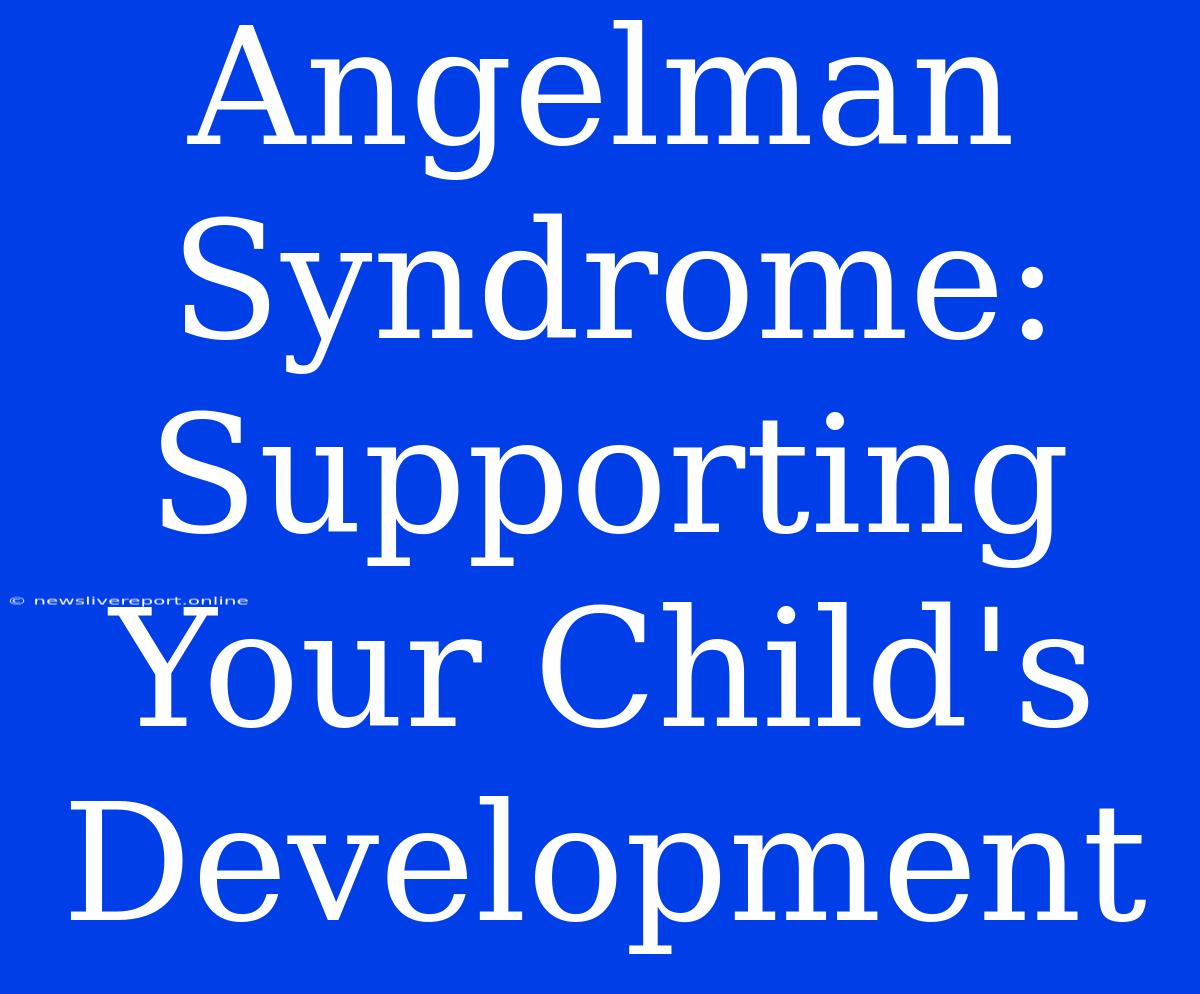Angelman Syndrome: Supporting Your Child's Development
Angelman syndrome is a rare neurodevelopmental disorder that affects a child's development, causing a range of physical and cognitive challenges. While there is no cure for Angelman syndrome, early intervention and supportive care can significantly enhance your child's quality of life.
This article will explore the key aspects of supporting your child's development with Angelman syndrome, focusing on strategies, therapies, and resources available.
Understanding Angelman Syndrome
Angelman syndrome is caused by a genetic mutation that disrupts the function of a specific gene called UBE3A, primarily located on chromosome 15. This disruption impacts the nervous system, leading to characteristic features including:
- Delayed development: Children with Angelman syndrome typically exhibit delayed milestones in motor skills, language, and cognitive abilities.
- Developmental disabilities: They may experience intellectual disability and challenges with learning and communication.
- Unique facial features: These include a wide mouth, protruding tongue, and a happy, smiling expression.
- Movement and balance issues: Children often have difficulty with coordination and balance, and may exhibit jerky movements.
- Seizures: Seizures are common in children with Angelman syndrome, affecting about 80% of individuals.
Supporting Your Child's Development
1. Early Intervention is Key:
- Diagnosis and treatment: Prompt diagnosis and early intervention are critical for maximizing your child's potential. Seek specialized care from a team of professionals, including neurologists, pediatricians, geneticists, and therapists.
- Therapy and Support: Various therapies can address specific challenges:
- Physical Therapy: Improves movement, coordination, and balance.
- Occupational Therapy: Enhances fine motor skills, self-care, and daily living tasks.
- Speech Therapy: Facilitates communication skills, including language comprehension and expression.
- Behavioral Therapy: Addresses challenges with behavior, attention, and social interaction.
2. Creating a Supportive Environment:
- Structured routines: Establish consistent daily routines to help your child thrive in a predictable environment.
- Positive reinforcement: Encourage and reward positive behaviors to promote learning and self-esteem.
- Sensory stimulation: Provide opportunities for sensory exploration through activities that engage sight, touch, sound, smell, and taste.
- Adaptive tools: Consider using adaptive tools and equipment to aid in mobility, communication, and daily tasks.
3. Managing Challenges:
- Seizure management: Work closely with a neurologist to manage seizures through medication, diet, or other interventions.
- Sleep difficulties: Address sleep challenges through consistent bedtime routines, calming techniques, and potentially medication.
- Behavioral issues: Utilize strategies like positive reinforcement, rewards, and behavior modification to address challenging behaviors.
4. Resources and Support Networks:
- Angelman Syndrome Foundation: Provides resources, information, and support for families affected by Angelman syndrome.
- Support groups: Connect with other families through support groups and online forums to share experiences and access valuable advice.
- Local organizations: Look for local organizations that offer specialized programs and services for children with disabilities.
5. Embracing Your Child's Unique Abilities:
- Celebrate strengths: Focus on your child's strengths, talents, and individual abilities.
- Promote independence: Encourage your child's independence by fostering self-reliance and problem-solving skills.
- Provide opportunities for inclusion: Seek opportunities for your child to participate in age-appropriate activities and interact with their peers.
Conclusion:
Angelman syndrome presents unique challenges, but with the right support, your child can thrive and lead a fulfilling life. Early intervention, specialized care, and a supportive environment are crucial for maximizing your child's potential. Embrace your child's individuality, celebrate their strengths, and focus on nurturing their overall well-being.

